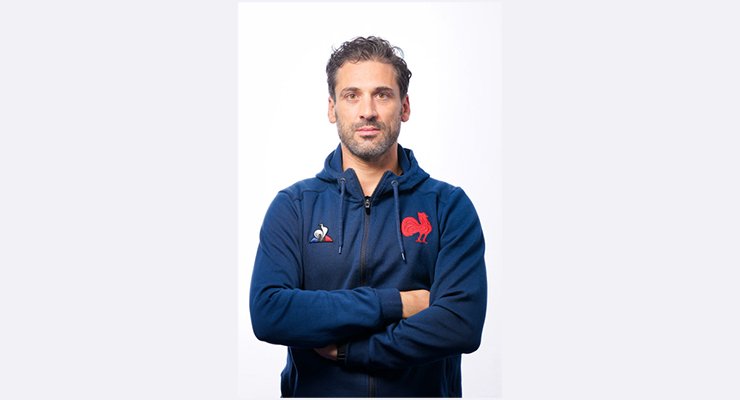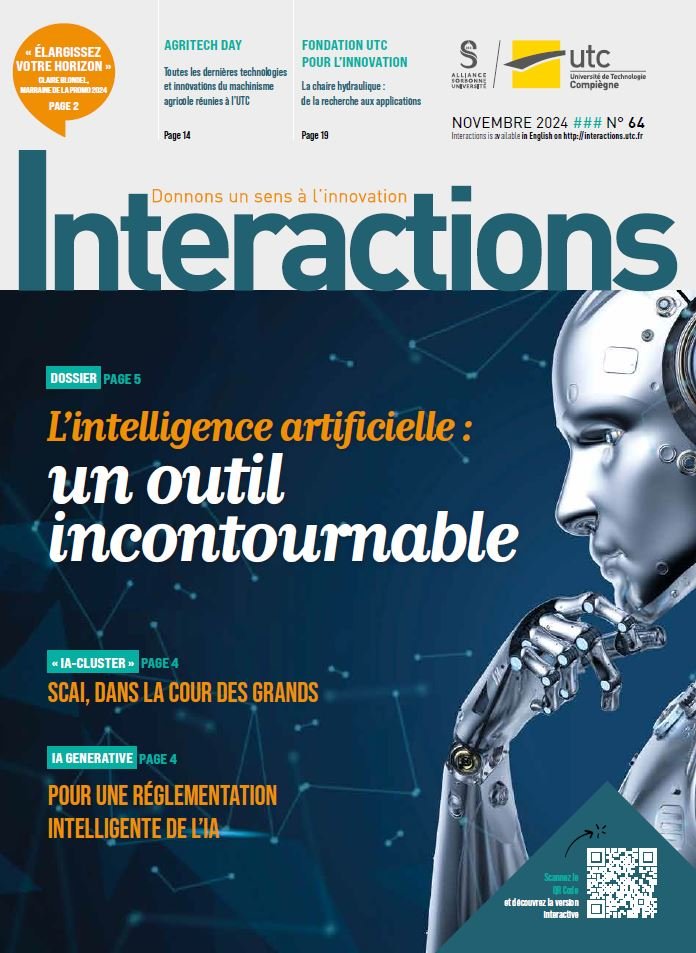Serving the Oval ball & France

Julien Piscione, a UTC PhD graduate, has been head of the Performance Support Department at the French Rugby Federation’s sports department since 2016. His passion for sport and keen interest in advanced studies have made him an expert in performance analysis.
«Even though it was painful to lose out in the quarter-finals of the 2023 Rugby World Cup, a lot of hard work was put in by our players, like Antoine Dupont, whom I’ve known for a long time. This is a team that wanted more than anything to win the title. But we’re going to bounce back. We have invested heavily, particularly in scientific terms,» explains Julien Piscione, head of Performance Support in the FFR’s Research and Development department.
Unlike his friends, who were going to engineering school, he chose to study STAPS, the science and techniques of physical and sporting activities, once he had passed his baccalauréat S, with honours. It has to be said that he already had a great deal of sporting experience by this time, in 2000. Julien Piscione had been practising Karate since he was five years old. He was a top-level sportsman from 1997 to 2001, a member of the Le Mans Karate Pole Espoir in 1997/1998, a member of the INSEP Karate Pole France from 1998 to 2001, then a club trainer and holder of the Federal Instructor Diploma.
Developing avenues for progress in the quest for performance
«Studying sports science very quickly became a goal for me and that’s where UTC Compiegne came into my life. After a DEA in Science and Technology, majoring in Biomedical Engineering, I embarked on a PhD obtained in 2006, entitled “Electromyographic study of striated skeletal muscles subjected to external mechanical compression”. The rugby scrum, which is heavily implicated in the occurrence of neck injuries, was an appropriate application for the electromyographic (EMG) study of muscles subjected to mechanical compression,» he sums up.
At the UTC BMBI (biomechanics and bio engineering) laboratory, he met Chantal Pérot, now Professor Emeritus at UTC. A rugby research programme was then set up in conjunction with the FFR, and Julien Piscione obtained a grant and worked assiduously for four years on his thesis. «It was an incredible experience because I discovered many different fields: engineering, computer science, biology and signal processing. My time at UTC opened my eyes to a global vision of research. Then I joined the FRR, where they were looking for the future head of the R&D unit. Today, I manage the Sport and Performance Sciences department.
Base camp for France’s teams
Julien Piscione takes a scientific look at many aspects of the lives of these top athletes, including physical and mental preparation, nutrition, sleep, data and stress. The aim: to always have a competitive edge over other nations. «For example, we know that rugby is a contact sport that causes injuries such as concussions. Using sensors in the mouthguards, we can assess head acceleration and identify situations that could lead to concussion.
For Julien Piscione, sport and innovation are closely linked. At the next Olympics, he will have a front-row seat in the stadium, not far from the players, like a rear base that will have done its utmost to help improve performance. «With an oval ball bouncing all over the place, it’s not always easy to play 15-a-side with somewhat complex rules. For me, that’s also the beauty of sport: you have to remain humble and admire the show!”
BIO EXPRESS
- Since 2016: Head of the Sport and Performance Sciences Department, Sports Department, French Rugby Federation (FFR)
- 2006/2002: Doctorate in Science and Technology, specialising in Biomedical Engineering, UTC
- 2002/2001: DEA in Science and Technology, ≪Biomedical Engineering≫ major, UTC




